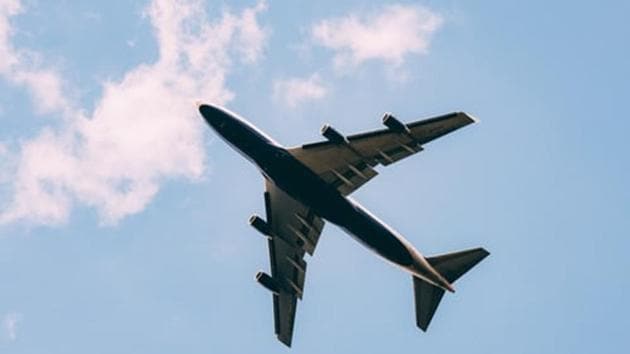German air travel slump points to spread of flight shame
The number of people flying between German cities fell 12% in November from a year earlier, according to the ADV industry group, marking a fourth straight monthly drop and mirroring a pattern emerging in Sweden, where teenage activist Greta Thunberg has spearheaded a campaign against air transport.
Mounting concern about carbon emissions may be altering travel habits in Europe’s largest economy as figures from German airports show a steady decline in passengers taking domestic flights.

The number of people flying between German cities fell 12% in November from a year earlier, according to the ADV industry group, marking a fourth straight monthly drop and mirroring a pattern emerging in Sweden, where teenage activist Greta Thunberg has spearheaded a campaign against air transport. Rail firm Deutsche Bahn AG has meanwhile reported record passenger numbers.
The data adds to signs that climate change is fostering a sense of so-called flying shame - flygskam in Swedish - among travelers that’s causing some to avoid one of the most polluting forms of travel. The phenomenon may be more advanced in Germany after the country suffered a series of extreme weather events that saw it buffeted by thunderstorms and the River Rhine running dry.
“To me, this is evidence of heightened awareness of climate change turning to consumer action,” said Stefan Goessling, professor of transport economics at Linnaeus University business school, Sweden, who analyzed the data and found a slowing economy, strikes and airline failures didn’t fully explain the slump.
The ADV numbers show that flights from Germany to other European countries have also declined to a lesser degree, something that might be accounted for by the relative uncompetitiveness of rail on trips much beyond four hours.
The number of inter-continental trips, where surface transport isn’t practical and which are often less discretionary than shorter ones, involving family visits and key business events, is still increasing.
The German trends replicate those seen in Sweden, where airport operator Swedavia AB reported in April that passenger numbers had dropped for seven consecutive months, just as state rail operator SJ posted record figures.
In Germany, which has suffered record-breaking heatwaves and a drop in Rhine water levels that halted barge shipments, caused fuel shortages and disrupted power production, the environment has become the most pressing issue among voters, according to pollster Matthias Jung. Support for the country’s Greens is above 20%, trailing only Chancellor Angela Merkel’s Christian Democrats.
ADV has suggested other factors may be at play in the slump, including strikes at Deutsche Lufthansa AG and the cancellation of routes between Berlin and three other cities. Goessling said that explanation doesn’t stack up given that the passenger numbers have declined across the country. Neither is the economy likely to have been a major factor, with household spending up 1.8% in the third quarter and consumer confidence rated “exceptionally high.”
Deutsche Bahn reckons annual passenger numbers on long-distance trains will reach 260 million by 2040, almost double the total for 2015.
The German government is helping to spur the shift, slashing ticket prices about 10% through tax cuts in a move forecast to win over about five million inter-city passengers a year. UBS last month said Europe may set for a “high-speed rail renaissance” as deregulation aids better services and cheaper fares.
The European Union plans to impose a jet-fuel levy as part of its new environmental strategy. Carriers including Ryanair Holdings Plc oppose the move and say nations could more effectively lower carbon emissions by investing in sustainable fuels and electric planes and simplifying air traffic control networks.
Alexandre de Juniac, head of the International Air Transport Association, last month urged carriers to better communicate what they’re doing to reduce emissions, warning: “We expect anti-flying sentiment to grow and spread.”
©2019 Bloomberg L.P.
(This story has been published from a wire agency feed without modifications to the text)
Catch your daily dose of Fashion, Health, Festivals, Travel, Relationship, Recipe and all the other Latest Lifestyle News on Hindustan Times Website and APPs.



